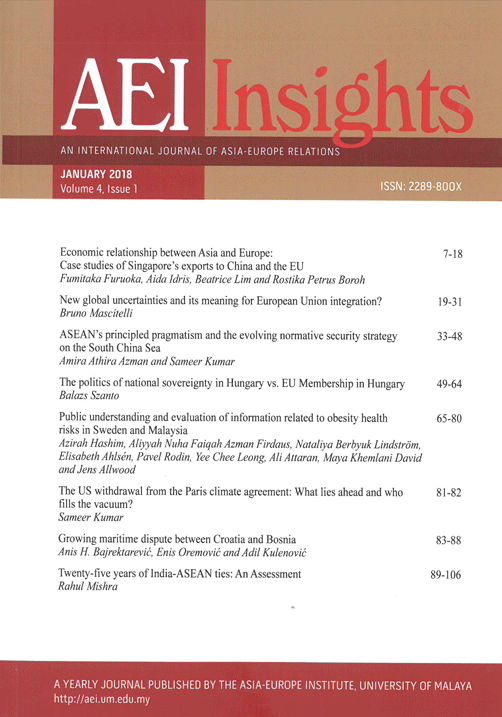ASEAN’s principled pragmatism and the evolving normative security strategy on the South China Sea
Keywords:
ASEAN, South China Sea, principled-pragmatism, normative security strategy, political-securityAbstract
The South China Sea dispute has been considered as one of the crucial tests for ASEAN due to
factors such as member-states' weak national resilience, China’s hegemonic expansion and
non-traditional security issues involving economic activities and environment, making it a
significant political-security agenda for the regional institution at the age of fifty. The overall
purpose of this article is to explore the core assumptions regarding ASEAN principledpragmatism and the evolving role of ASEAN normative security strategy underlying the concepts of ASEAN Way, neutrality, multilateralism and centrality relating to the South China Sea dispute. Based on the conceptual frameworks, we show that ASEAN’s principledpragmatism is imperative in determining the ten member states foreign policies underlying the expectation of ‘low cost-high benefit’, ‘low cost-low benefit’ or ‘high cost-low benefit’. We further argue that the aspects of threat perception, economic dependency and national resilience are necessary not only to explain the extent of how ASEAN could reach the condition of ‘winwin' in its framework, but to also help elucidate the Association's viability as a regional organisation in managing the multifaceted interests in its political-security paradigm.




